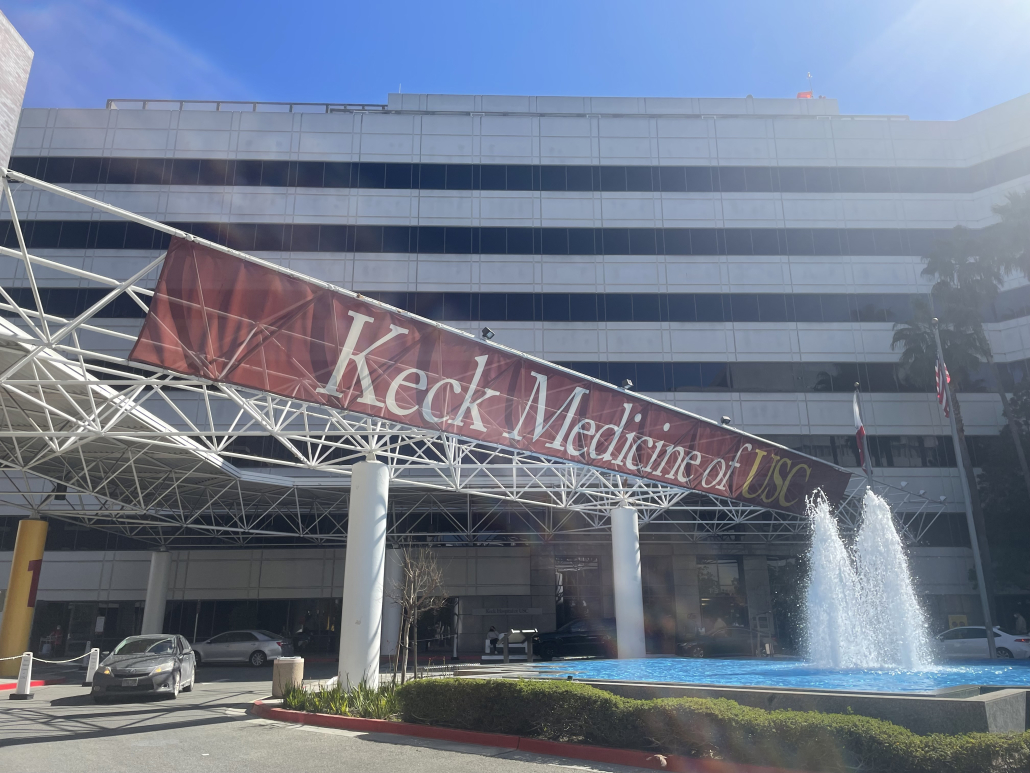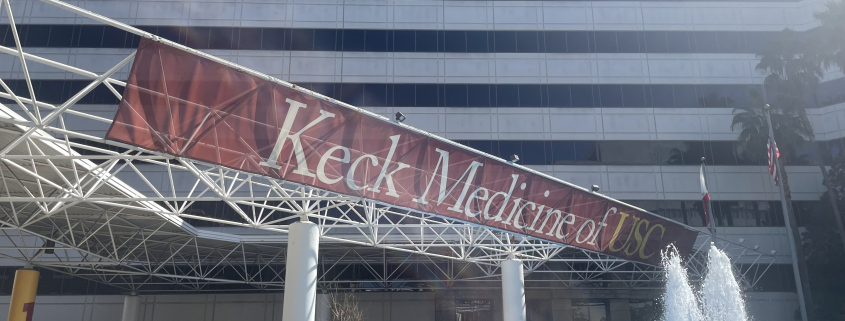$50 million gift to further Alzheimer’s research

Almost every family has been touched by Alzheimer’s, according to Executive Chairman and Founder of the CTonAm Group Daniel Epstein. If they haven’t, Epstein said, their next door neighbor has.
Epstein witnessed his identical twin brother suffer from Alzheimer’s for 15 years before passing away as a result of the disease. Driven by this experience, Epstein committed to progressing Altzheimer’s research and making a difference in the medical world.
The Epstein Family Foundation gave USC and UC San Diego a joint $50 million donation in January to continue Alzheimer’s research and advance the search for treatments and a possible cure. The gift is to be split evenly, with USC and UCSD each receiving $25 million to propel their Alzheimer’s research efforts.
Besides Epstein’s connections as an alum of USC and a resident of San Diego, Epstein said the donation was motivated by the innovative Alzheimer’s research done at USC and UCSD. The donation aims to open up opportunities to discover new solutions building off of past research and innovation, Epstein said.
“[USC and UCSD]’s approach is something they call ‘Powder for Pennies,’ where they’re trying and studying repurposing existing drugs for use in Alzheimer’s treatment,” Epstein said. “So, if there’s [a drug] already existing out there … and has been used for treatments of other diseases, there is a possibility to building and finding something that would have applicability in Alzheimer’s.”
Paul Aisen, director of the Alzheimer’s Therapeutic Research Institute at USC, said he believes the gift will accelerate the development of effective treatments for the disease and help the program fulfill its goals. These initiatives include developing methods to improve the diversity of clinical trial populations, developing new technology and enhancing infrastructure for sharing data.
“The entire field of Alzheimer’s disease drug development has been plagued by a problem with its clinical trials … People who volunteer to participate in clinical trials are typically a very homogeneous group: highly educated whites,” Aisen said. “Clearly, we need a representative population, and so this gift is going to support our work in outreach to communities, particularly Black and Latino communities. It’s going to support the development of a more inclusive trial.”
In addition to diversifying trials and refining technology, both institutions aim to gain an improved understanding of Alzheimer’s causes, which may give more insight into the steps that can be taken to prevent or cure it, Epstein said.
Dr. Howard Feldman, in a statement to the Daily Trojan, said he considers the Epstein Family donation as the opportunity of a generation, creating the ability to completely alter and improve Alzheimer’s disease treatment development.
Feldman, a professor of neurosciences, director of Alzheimer’s Disease and Cooperative Study and dean of Alzheimer’s and Neurodegenerative Research at UCSD’s School of Medicine, said that one of the ways the university aims to do this is with a Gene Therapy Program, which will target and work with families with inherited forms of Alzheimer’s.
“[Successful gene therapy] has not been used in Alzheimer’s disease to date,” Feldman said. “Our aspirational goal is to advance an array of gene therapy approaches supported through the Collaboration to be able to test the most promising therapy in persons with mutations of the presenilin gene, which causes the disease, within the next five years.”
Epstein said he saw value in splitting his foundation’s $50 million donation between both universities to encourage collaboration in exchanging and building upon research and ideas.
According to Inside Higher Ed, in 2019, USC agreed to pay $50 million to settle a legal dispute with UCSD. UCSD alleged that Southern California illegally planned to take top Alzheimer’s researchers from their department. Aisen said there is no correlation between the current donation and previous difficulties, and that the donation will encourage greater collaboration between the two universities.
Feldman said that he believes a collaborative effort will produce even greater effects in Alzheimer’s studies, as having faculty expertise from USC and UCSD while developing clinical trials will enhance this process.
“UC San Diego and USC are research powerhouses in the field of Alzheimer’s research, so this gift allows us to leverage our respective strengths for even greater research impact,” Feldman said. “The goal of the Epstein Family Alzheimer’s Research Collaboration, made possible by this donation, is to expedite the discovery of better treatments and, ultimately, a cure for Alzheimer’s disease.”
Correction: A previous version of this article stated that Daniel Epstein was an employee at UCSD. Epstein has not been employed at the university. The Daily Trojan regrets this error.

